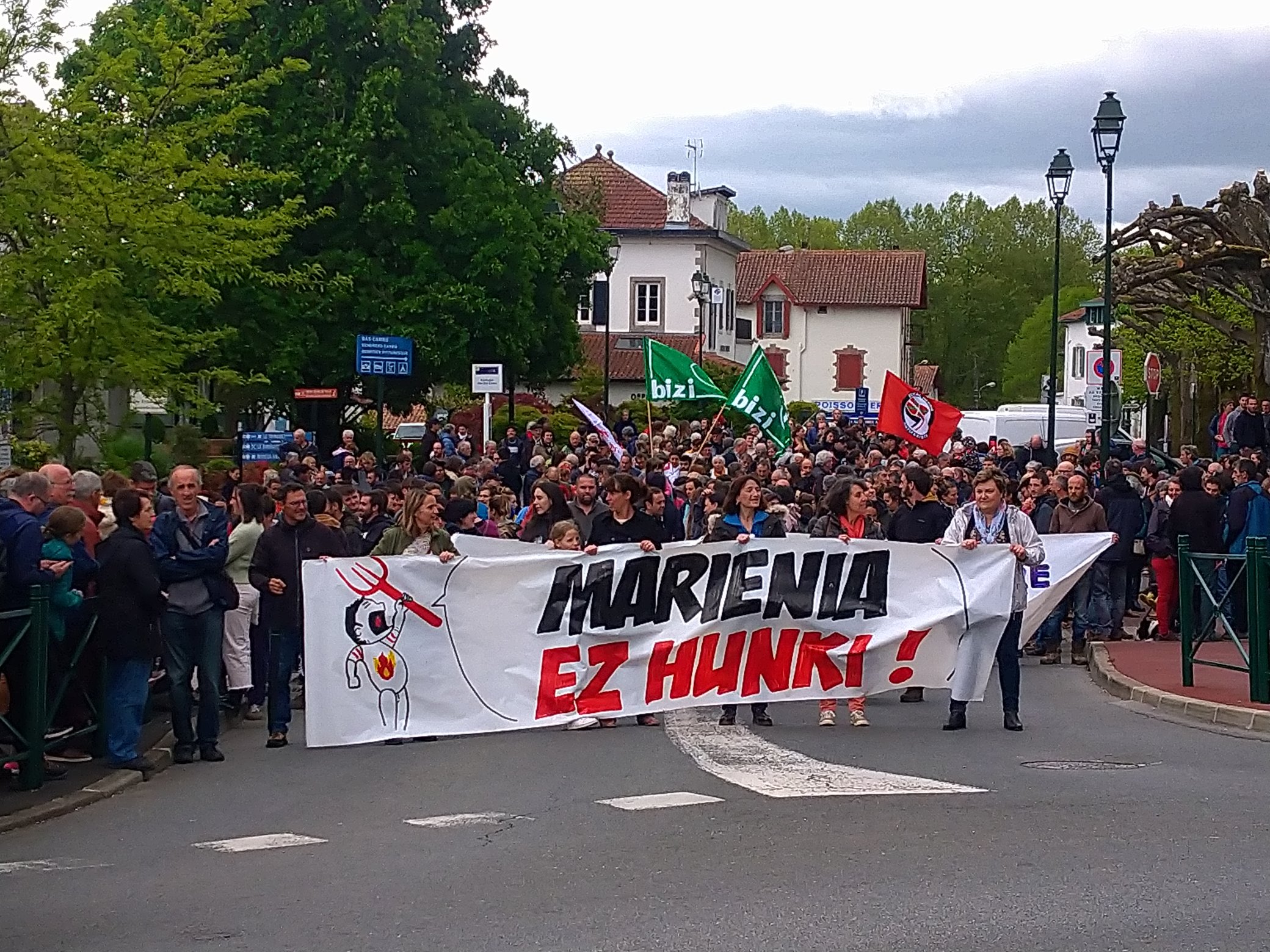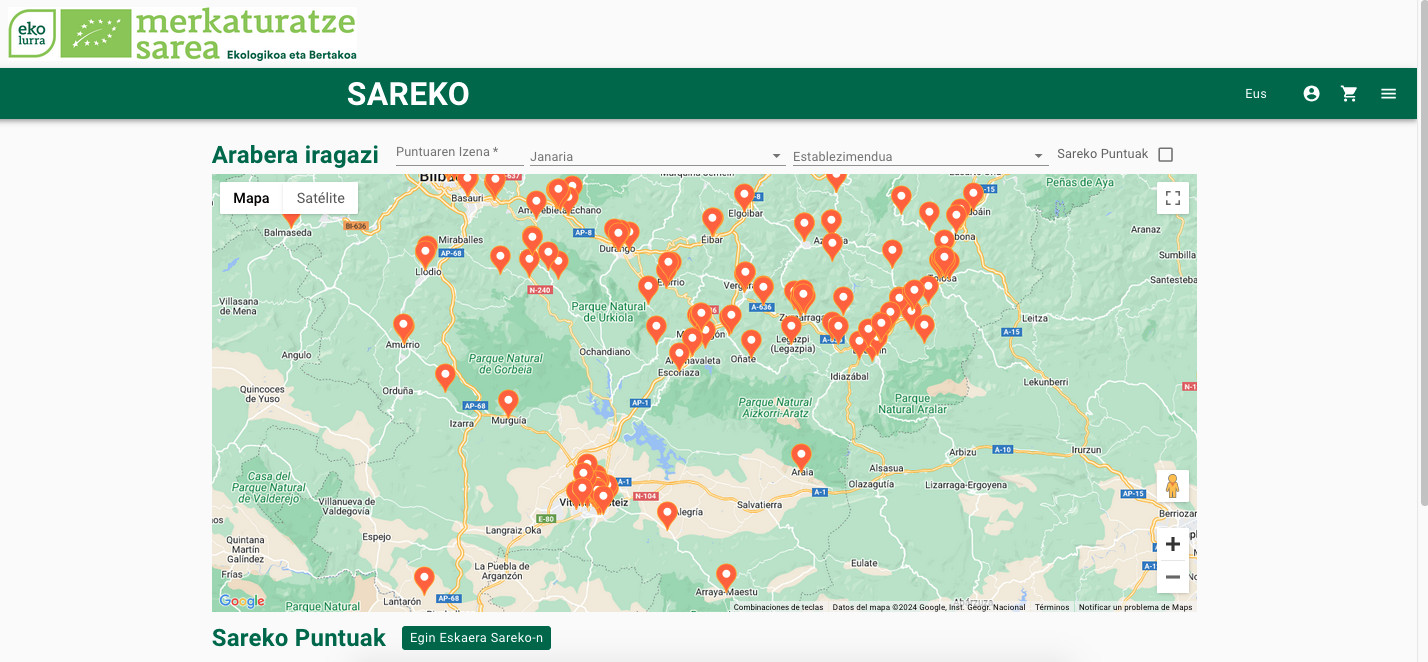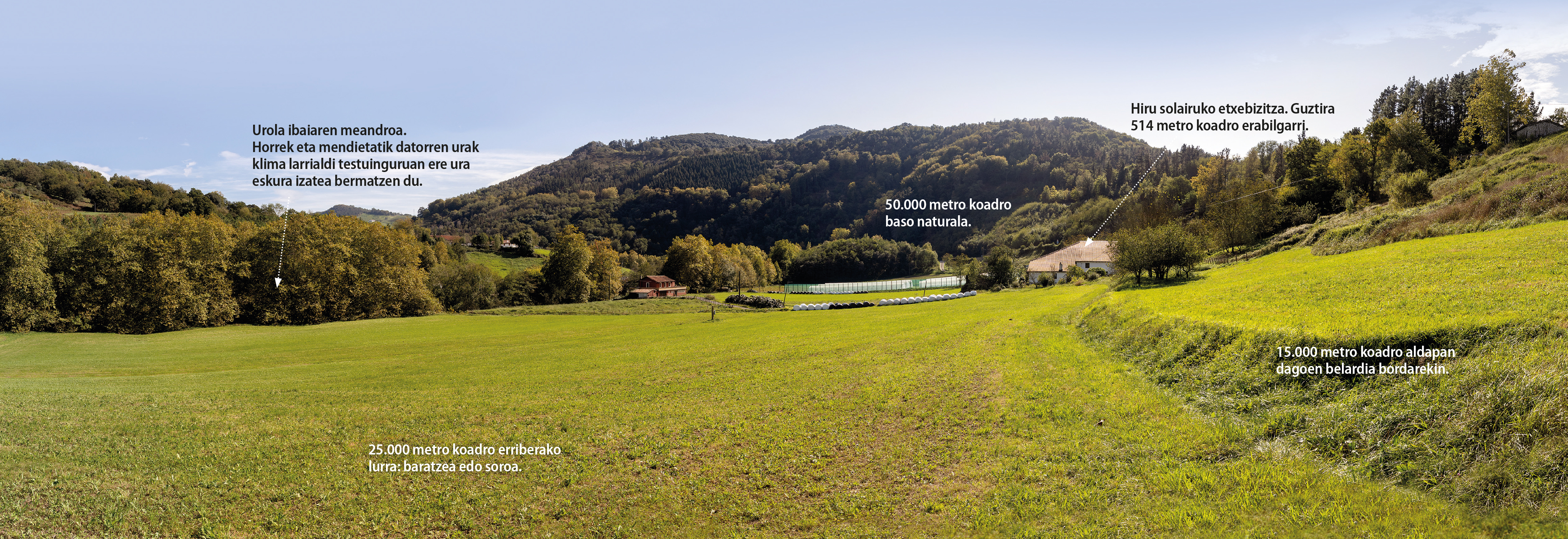The Elika cooperative begins to cultivate the land of Oiartzun to harvest it
- Jakobe Beramendi and Ioritz Mitxelena are members of the Elika cooperative. There are 10 people involved in this project. While Ioritz and Jakobe focus on producing, the other eight members worry about money and bureaucracy. The project has been launched in the lands rented by the Council of Oiartzun and the production will start to be commercialized by spring.

The Elika cooperative is made up of 10 members who are concerned about the loss of the rural world of Oiartzun. As an example, it is mentioned that in 1930 50% of the population of the town was dedicated to agriculture and today it is between 1% and 2%. They saw that “the farmer’s work is exploited, under-resourced and poorly paid” and they thought that something practical had to be done about it, as Ioritz Mitxelena and Jakobe Beramendi explain.
As part of the Lurvivir project, the Oiartzun Town Council, together with the Association for Rural Development Behemendi, rented two hectares of the Kutxo farm and two garden projects have been established there. On the one hand Elika and on the other Arraztalo, the association of psychic diseases of Oiartzun. Jakobe and Ioritz had long been eager to act “without a boss,” they say, smiling. “This is an opportunity to start working with our own team with a new project. We see that it requires responsibility, but there is also the pleasure it brings.”
The Altruistic Work
Mitxelena has inherited knowledge about the farm from her parents, who have always had a garden at home. Jakobe Beramendi comes from the garden and says that “since we were children we have seen that it is hard work. Now we have this team with the awareness and the illusion to work.” The Elika cooperative is made up of 10 people and has two employees: Ioritz and Jakobe dedicated to food production. The remaining eight members deal with matters other than treasury, legal, subsidy and production. “It’s great for us to be able to focus all our energy on producing. A project like this requires a lot of bureaucracy and not having to worry about it allows us to focus more on production”, they stress. “They do a really altruistic job because they believe in it, today there are very few people willing to do it, it’s really appreciated.”
Last October they moved the land, they did analyses to find out what kind of land it is and slowly they have been setting up greenhouses. After the analysis, they sent us some recommendations. We plowed, threw lime and gave the land a month’s rest. We bought and assembled the greenhouses and at the end of November we started to put the first harvest.”
The plot of land is barely 10,000 meters. A total of four greenhouses will be installed and the rest of the surface will be cultivated by outdoor gardeners. “We want to go green. What happens is that we have difficulties in obtaining seeds and not all seeds are ecological, but the production techniques and the products we will use will be ecological.”
They value very much the teachings they have received from Ioritz’s mother, “it is her mother who is teaching us how to pick up seeds, to store them, to sow them... this gives us peace of mind”, Jakob emphasizes.
They value positively the approval in the village, “when we made the presentation about 120 people showed up. It is gratifying to see how the people of the village have embraced the project, for example, when passing by the bike path next to the garden the grandparents give us their recommendations, they have worked in the garden all their life and give us their point of view, that is very gratifying.”
Intention to expand the offer
When asked about the offer they will have, they point out that until now they knew the “traditional varieties”, but when they start to consider the possibility of expanding the offer a little, “we have noticed that there are a lot of varieties”. In this sense, they want to bet on aromatic plants, “we also want to put herbs in the kitchen and we plan to create variety in terms of vegetables and cultivate some genetics. With the intention of starting slowly, but we want to try around the herbs for cooking, like you can put parsley to cultivate mint, tomillo and the like.”
The production is expected to be ready between April and May, when the first harvest is collected and the sale begins. During the marketing period, three routes have been proposed. On the one hand, they plan to do it through the basket, on the other they will use the store of the Oarsoaldea Cultivar initiative, and on the other they have also contacted the small stores. “Since we are close to the Red Road, people have also shown us their intention to buy from it, but for the moment we plan to leave this option for the end, focusing on the others first.”






















